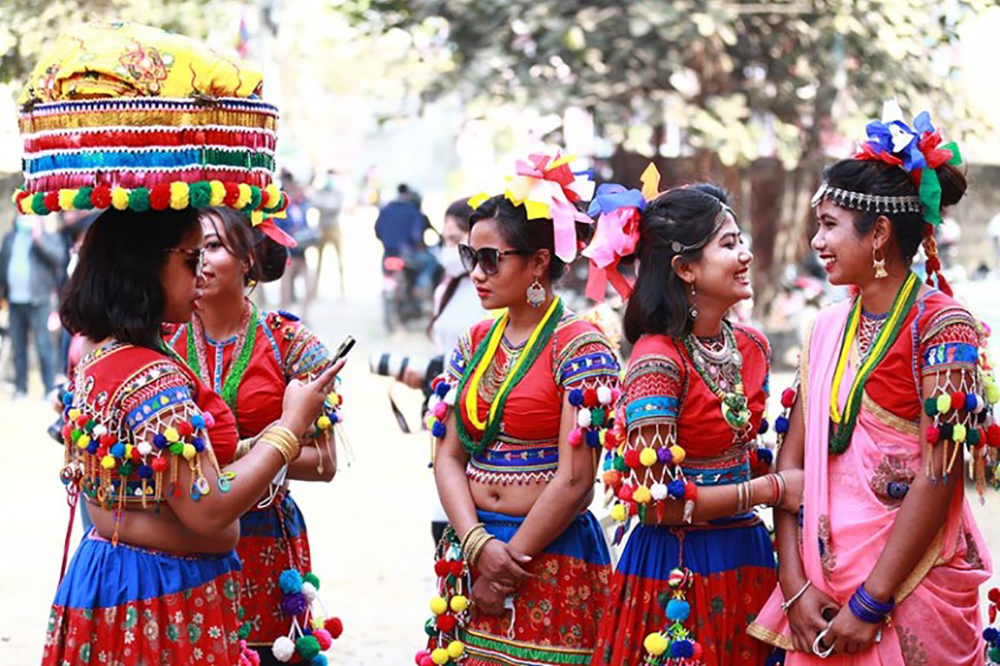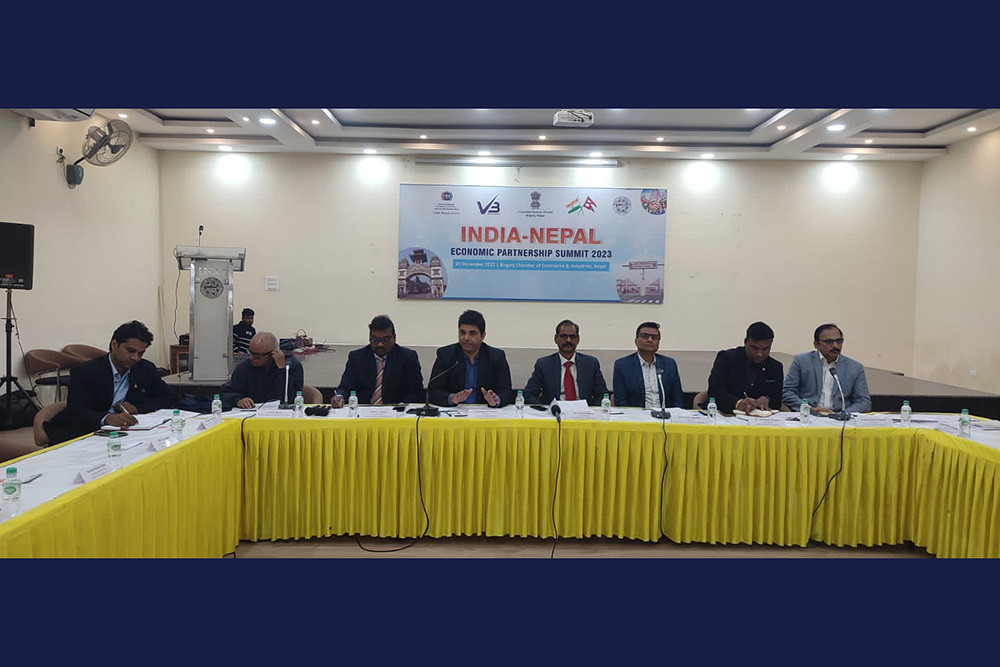
KATHMANDU: 'Maghe Sankranti', 'Maghi' and 'Ghyo Chaku Sallnhu' are being observed throughout the country today. On this day, devotees and revellers take holy dips in rivers and ponds, worshipping at various temples, and savouring delicacies like ghee, yam, khichadi and sweets.
As per the astrological chart, the Makar Sankranti has special significance. From this day onwards the sun starts its ascendancy and enters into the northern hemisphere. The sun moves from the tropic of Sagittarius to the tropic of Capricorn (Makar). It is believed that the days get longer and nights shorter from today itself. According to ‘Bhabisya Puran’ and ‘Dharma Sindhu’, religious texts, devotees get special blessings and will have a robust body if they observe the festival as per the rituals, said theologian and Chairperson of Nepal Calendar Determination Committee, Prof Dr Ram Chandra Gautam.
The Newar community observes the festival by remembering the departed souls and taking ghee, chaku and sweets. This festival is called ‘Ghyo Chaku Sallnhu’. Senior members of the family apply oil upon the heads of juniors. A large number of devotees throng Devghat, Barahkshetra, Ridi, Panauti, Dolalghat and Kankai in Nepal, and Prayag and Gangasagar in India to take holy bath and perform shraddha.
A large number of devotees throng Devghat, Barahkshetra, Ridi, Panauti, Dolalghat and Kankai in Nepal and Prayag and Gangasagar in India to take a holy bath and perform Shraddha.
The festival has significance in view of Ayurveda and medical science as well. Food items that are taken on this day are components of a balanced diet that increase the immunity power of the human body. On this day, a festival is organised at the Tilmadhav Narayan Temple at Taumadhi Tole, Bhaktapur and puja of Deepakankar Buddha is performed.
Likewise, the Tharu community observes this festival as ‘Maghi’, ‘Makarsankarait’, ‘Maghesankarait’ or ‘Tilasankarait’ with much fanfare and gaiety for five consecutive days. People of various communities in the Tarai region mark this day as the festival of bath known as ‘Nahan’.
Although various Tharu leaders and members of the civil society have marked ‘Maghi’ as a New Year festival, Baisakh is in fact the beginning of 'New Year', according to Tharu culture experts.
People from the Tharu community observe Maghi as the beginning of a new season as plans are made for managing households and farms after harvesting. Each Tharu household recruits either new labourers or managers for farm works or makes new contracts with people from other communities for specific tasks.
Blacksmiths, tailors, barbers, priests, among people from other communities with specific professions, are appointed and engaged amid the festival. However, with the change in the profession of people in line with their educational skills, and also due to lack of manpower with the increasing migration in foreign employment, such traditions are gradually changing now.
During the festival, people belonging to the Tharu community hold feasts which they prepare in advance. Food items prepared from oysters, pila, fish, mutton, squab, duck, pork are consumed in the festival. Other delicacies include sweets made from molasses, puffed rice and sesame seeds.
Tharus primarily celebrate the festival as a family gathering. However, those living in urban areas have started observing the festival jointly as a fair since 2006 after the government listed it as a national festival. However, the festival is celebrated in a low-key manner due to Covid 19 pandemic.
READ ALSO:
Published Date: January 15, 2022, 12:00 am
Post Comment
E-Magazine

Click Here To Read Full Issue
RELATED B360 National






